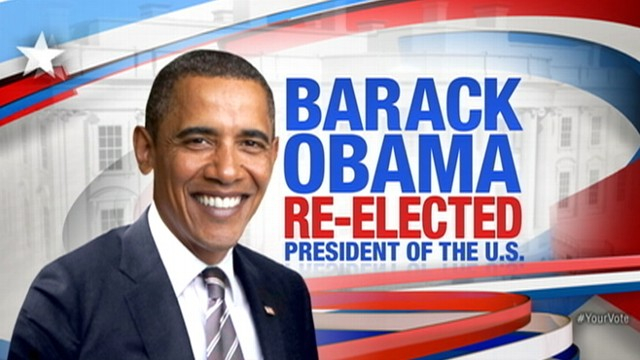Note d’actualité
Que veut dire, pour l’Europe, la réélection de Barack Obama ? Outre la continuité, y aura-t-il plus d’intransigeance sur certains dossiers ou, au contraire, sera-t-il un peu plus attentif aux susceptibilités de ses alliés ? Ce sont le genre de questions avec lesquelles les responsables européens ne cessent de harceler et leurs conseillers et tous ceux qui acceptent de se faire inviter par eux à Washington DC.
Au-delà de quelques constantes que l’on évoquera ici allant du plus anecdotique au plus fondamental, la réponse que l’on propose, c’est que pour une fois oui : du changement, il y en aura. Mais cette mutation annoncée des relations transatlantiques n’a rien à voir avec la reconduction d’Obama à la présidence des Etats-Unis, ni avec la crise financière et économique, ni même avec les grandes recompositions géopolitiques en cours, auxquelles l’Europe reste si ostensiblement aveugle et sourde. Elle est le seul fait des Européens eux-mêmes, et vient de leur refus pathologique d’assumer leurs propres intérêts au lieu de faire de l’Amérique leur principal, sinon unique, point de repère.

(Credit photo: ABC News)
Vieilles habitudes
Comme à chaque fois, depuis plus de vingt ans, dès la proclamation des résultats US, les dirigeants européens se livrent à leur sport favori : une sorte de concours de beauté, aussi grotesque qu’indigne, afin de savoir qui va devancer qui pour faire acte d’allégeance au nouveau Président des Etats-Unis. Ceci indépendamment de la personne du Président élu ou du fait qu’il s’agisse d’un premier ou second mandat. Ainsi, en février 2005, c’est un George W. Bush fraîchement réélu, en visite en Europe, qu’ils se précipitaient à saluer avec tant d’empressement que le Premier ministre luxembourgeois Jean-Claude Juncker, alors président en exercice du Conseil européen, ne pouvait pas s’empêcher d’ironiser au vu de la bousculade générale : « Si le ridicule tuait, Bruxelles serait jonchée de cadavres ».
Comme à chaque fois, depuis plus de vingt ans, les responsables européens reviendront de ces rencontres-audiences avec les mêmes éléments de langage. Selon lesquels ils auraient été surpris de découvrir à quel point l’Amérique serait beaucoup plus prête, et même de plus en plus impatiente de voir ses alliés devenir plus indépendants, plus « capables ». Pour mieux souligner ce point, ils n’hésitent pas à admettre que, par le passé, il pouvait y avoir de la réticence, voire de l’hostilité dans ce domaine de leur part. Seul petit bémol : dans ce passé qu’ils citent en contrepoint, ils nous servaient exactement le même langage. Avec exactement les mêmes arguments traduisant exactement le même amalgame. En mettant en avant les limites du budget US (pour cause d’abord de « dividendes de la paix », puis de dépenses de guerre, ensuite de la crise financière), ainsi que leurs responsabilités globales pour faire entendre que l’Amérique aurait enfin besoin d’un partenaire et non plus d’un « vassal ». Il est vrai que les Etats-Unis ne cessent d’appeler les Européens à mieux se prendre en main – mais dans leur vocabulaire, il s’agit d’améliorer les capacités (de préférence made in USA) de ceux qui ont vocation d’agir soit en tant que supplétifs, soit comme sous-traitants dans des situations de crise dont ils préfèrent ne pas s’occuper. Si l’Amérique ne se soucie plus tellement de savoir si c’est dans l’OTAN ou à l’UE que les Européens deviennent plus « capables », c’est d’une part parce que la politique de défense de l’Union est en train de se diluer au point de ne constituer plus aucune concurrence à l’Alliance. De l’autre, parce que dans les domaines clés la mainmise américaine reste tout aussi entière qu’avant.
Comme à chaque fois, depuis plus de vingt ans, l’encouragement US en faveur d’une plus grande « indépendance » des Européens reste solidement encadré par les deux domaines réservés auxquels les Américains attachent, non sans raison d’ailleurs, la plus grande importance. A savoir l’armement et la chaîne de commandement. Quant à cette dernière, dans l’Alliance, tout marche à merveille. Il y existe deux chaînes de commandement parallèles, l’une étiquetée OTAN, l’autre tout-Américain, avec à leur tête le commandant à double casquette SACEUR (chef suprême des forces alliées) et commandant d’EUCOM (patron des forces US sur notre continent). De toute façon, même dans la chaîne OTAN les hauts gradés non-US n’ont qu’un rôle de figurant. Comme l’avait fait remarquer l’ancien ministre des Affaires étrangères Hubert Védrine : « la nationalité du général qui transmet les ordres américains importe peu ». Attachée à ce contrôle sans partage, l’Amérique continue à s’opposer viscéralement à toute idée d’un « caucus » européen dans l’Alliance (dont, en l’état actuel des choses, elle n’aurait rien à craindre pour autant). En même temps, elle s’emploie traditionnellement à bloquer la mise en place d’un véritable quartier général à l’UE. Là aussi, plus aucun souci à faire : les plans actuels prévoient une enceinte qui ressemblerait plus à un siège d’ONG qu’à un centre de commandement militaire. En matière d’armement, les Etats-Unis restent fermement hostiles à toute réglementation européenne similaire à ce qu’ils mettent en œuvre, eux, afin de préserver leur base technologique et industrielle. S’y ajoutent les projets (comme l’avion Joint Strike Fighter ou la défense anti-missile balistique) à double utilité : contrats juteux pour les industriels américains, et phagocytage des budgets européens – dont on aurait pu, en principe, financer des programmes plus conformes à nos propres intérêts.
Nouvelles déceptions
A la différence de ces vingt dernières années, le roi est non seulement nu, mais il l’est désormais sans aucun paravent. Avec les budgets de défense en chute libre des pays européens, il est évident que les initiatives comme Pooling and Sharing (UE) ou Smart Defense (OTAN) ne montrent qu’une seule chose : pour la majorité des gouvernements, tout alibi est bon à prendre pour tailler un peu plus dans les budgets de défense. Le mantra absurde de « faire plus avec moins », quitte à y perdre de son indépendance, n’est pas seulement un cache-nez dérisoire pour ce qui est, dans l’esprit de la plupart des Européens, une mutualisation des incapacités. Il est aussi révélateur de la même vision de comptable à court terme, que celle qui pousse les dirigeants européens à vouloir croire – et faire croire – à un hypothétique parapluie américain. Peu importe que celui-ci n’a jamais été crédible (pour cela, il aurait fallu convaincre tous les adversaires potentiels que l’Amérique prendrait le risque de son propre anéantissement juste pour courir à la rescousse de ses alliés). L’essentiel pour les gouvernements européens est de se débarrasser du fardeau financier, mais aussi politique et psychologique, que signifie la responsabilité de la défense de son propre pays. Tant que l’Europe fut au centre des préoccupations (du fait de la confrontation bipolaire) ou qu’il ne le fut plus mais cela ne se disait pas tout haut, on pouvait, à la limite, se bercer d’illusions sur l’importance de notre vieux continent sur la liste des priorités de la Maison Blanche/Pentagone. Tel n’est plus le cas. Le pivot vers l’Asie, annoncé en janvier dernier, y a porté le dernier coup de grâce. La subordination volontaire des Européens aux Etats-Unis apparaît comme elle est : au dire de l’ambassadeur de la Chine à Bruxelles, « une servilité pitoyable ».
A la différence de ces vingt dernières années, les Américains peuvent lâcher un peu du lest et afficher nettement une attitude d’« ouverture ». Car la soi-disant politique de sécurité et de défense commune de l’Union européenne (PSDC), conçue à l’origine pour libérer l’Europe de la défense de la tutelle otanienne (au grand dam des milieux washingtonien), est en train de tourner en sa propre caricature. Force est de constater que le projet qui, de par son potentiel, a provoqué un déferlement de panique, de pressions et de chantages à l’époque, tend aujourd’hui plutôt à confirmer les sceptiques qui le disaient utile « pour faire descendre des chats du haut des arbres » tout au plus. Le choix de l’otanisation de son personnel et de ses normes, de la civilianisation de ses institutions et du détricotage de ses ambitions reflète les réserves, sinon les blocages, parmi les 27 gouvernements (26 en fait, puisque le Danemark se tient dès le départ à l’écart de la PSDC) de l’Union. Certes, l’ex-ministre des Affaires étrangères de la Bulgarie frappe par sa franchise lorsque, en parlant de la crise financière, il dit y voir une opportunité pour arrêter de se raconter des histoires au sujet de la PSDC (« cut the crap on CSDP » pour le citer fidèlement) et mettre plutôt tous nos œufs dans le panier OTAN. Mais ce n’est pas dire que d’autres pensent autrement. En effet, même des experts-analystes connus comme « européistes » commencent à changer leur fusil d’épaule, et prônent une sorte de fusion PSDC-OTAN, croyant résoudre ainsi l’impasse de la situation.
A la différence de ces vingt dernières années, l’ancienne-nouvelle administration américaine n’a donc plus exactement les mêmes motifs qu’auparavant pour maintenir sous contrôle ce que l’un des conseillers-stratèges US les plus emblématiques, Zbigniew Brezinski, appelait sans ambages leur « protectorat ». Dans les années 1990 et au début des années 2000, il s’agissait, pour Washington, de préserver sa tutelle sur une puissance en devenir qui, une fois émancipée, risquerait de porter ombrage à sa suprématie mondiale. Comme l’écrivait Brzezinski : « une Europe militairement émergente pourrait devenir une formidable concurrente pour l’Amérique. Elle constituerait inévitablement un défi à l’hégémonie US. Une Europe politiquement forte, capable de rivaliser en matière économique, et qui ne serait plus militairement dépendante des Etats-Unis remettrait inévitablement en cause la suprématie américaine et confinerait la sphère de la prédominance des USA grosso modo à la région du Pacifique. » Hélas, on n’est plus là. Avec une Europe qui choisit de s’enfermer dans les matrices (institutionnelles, matérielles, psychologiques) de la dépendance et de l’impuissance, et au vu de l’activisme prévisible de nouveaux pôles de puissance, l’Amérique est aujourd’hui plutôt soucieuse d’empêcher que son protectorat ne devienne un jour celui d’un rival…
A l’origine de ce déclassement à marche forcée, on retrouve un bien curieux mélange que cultivent les Européens entre l’alignement sur les décisions prises à Washington et une démission coupable déguisée en bonnes intentions. D’un côté, avant de se positionner sur tel ou tel sujet, les pays européens regardent d’abord vers l’Amérique avec ce que l’ex-Commissaire européen, le britannique Chris Patten appelait leur « réflexe pavlovien ». De l’autre côté, plongés dans leurs rêveries féeriques où le monde ne serait que charité, marché, multilatéral, angélisme pacifiste, refus de la puissance et soi-disant communauté internationale, ils font vertu de leurs abdications et professent leur vision suicidaire comme une religion. Au plus grand bonheur de tous leurs potentiels rivaux. Lesquels peuvent noter, certes avec étonnement, mais pas moins de joie, que l’Europe est affreusement en retard dans la recomposition en cours de l’échiquier mondial.




















